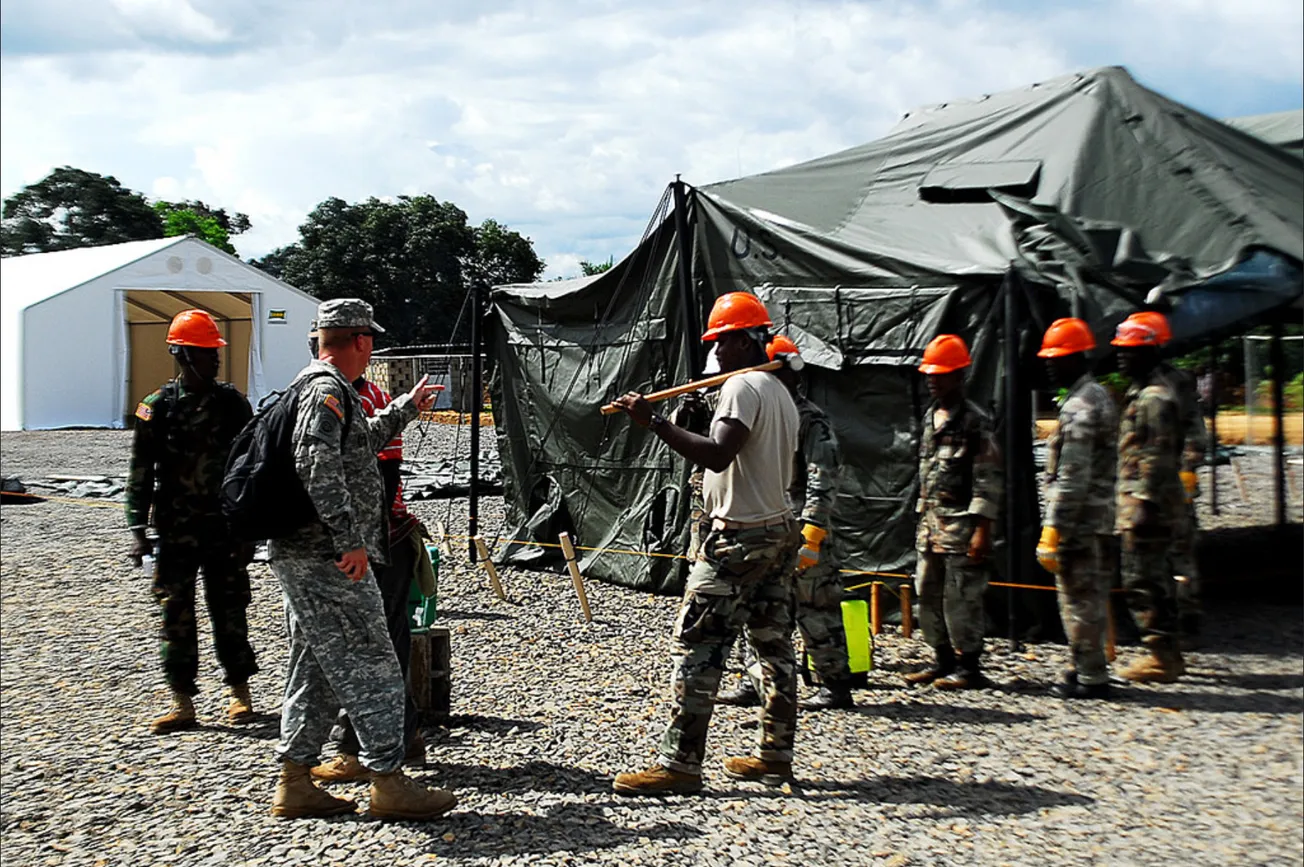Table of Contents
In the case of Ebola, there are infrastructure issues that prevent active and successful treatment of infected patients. In an NPR interview with Deborah Malac, U.S. Ambassador to Liberia, Malac comments that along with missing adequate personal protective gear, clean water, sanitation, and good weather, there is a lack of paved roads, electricity, and cell phone coverage to expedite the process of building treatment centers. A PBS interview with Dr. Joanne Liu, president of Doctors Without Borders, highlights the necessity for people in the field to tackle the Ebola issue by reducing misinformation about the disease and tracking contact so that the health care systems of countries that are affected do not collapse for those who still need access to basic health care (such pregnant women and those with malaria).
Right now, the military of multiple governments can be found in West Africa. Utilizing the logistical strength of the US military is possibly be one of the most effective ways to transport supplies and build treatment centers. However, running treatment centers requires medical staff. Suppressing the spread of the disease requires greater awareness of how it spreads. Rural communities should be interacting with a culturally aware liaison to determine the most effective way to educate people on how to protect themselves from the disease. While the military may play a helpful role in mitigating the issue, Ebola might be used as an excuse for the state to overstep its right to police its people.
Liberian president and Nobel Peace Prize Winner, Ellen Sheriff, sided with the Liberian army and against her domestic and international health advisers when deciding to quarantine all of West Point, an urban neighborhood in Monrovia, for 21 days. Approximately 60,000 people were crammed into substandard living situations, facing shelter shortages, sanitation issues, and starvation. Initial responses included protests and police violence, and eventually domestic and international pressures ended the quarantine after only 10 days. Post-quarantine West Point spawned a multitude of opinions. While some now realize the gravity of the virus, other residents of West Point blame the government for incorrectly assuming they were ill and citizens tread more along the lines of government conspiracy. Recently, police used batons and whips to disperse a group of 100 protesters outside of the National Assembly. The congress was debating to extend extra powers to President Sheriff due to the state of emergency. Already, the senate elections that were to be held have been postponed, with no announcement of a new election date. While stability and certainty can be helpful in times of emergency, there is a fine line between protecting people and abusing powers. If the people of Liberia cannot trust their government, it will be even more difficult to implement large scale information campaigns and improve infrastructure issues to increase treatment of Ebola and to maintain current basic health care systems.
Military response to this medical issue is clearly injecting fear into the eyes of those living in affected countries as well as potentially creating an overreaction in the media and general public of the United States. There are psychological, economic, and political effects to militarizing the issue of ebola. However, when rapid response is needed in a region where logistical implementation is not easy (and sometimes not feasible), foreign military personnel with the sole goal of aid can be a helping hand to addressing immediate needs. Hopefully, the perception of needing such large scale intervention will draw attention to the infrastructure issues facing the countries battling Ebola and focus funds and resources on building out basic structures that allow emergency responses to be fast and effective.





